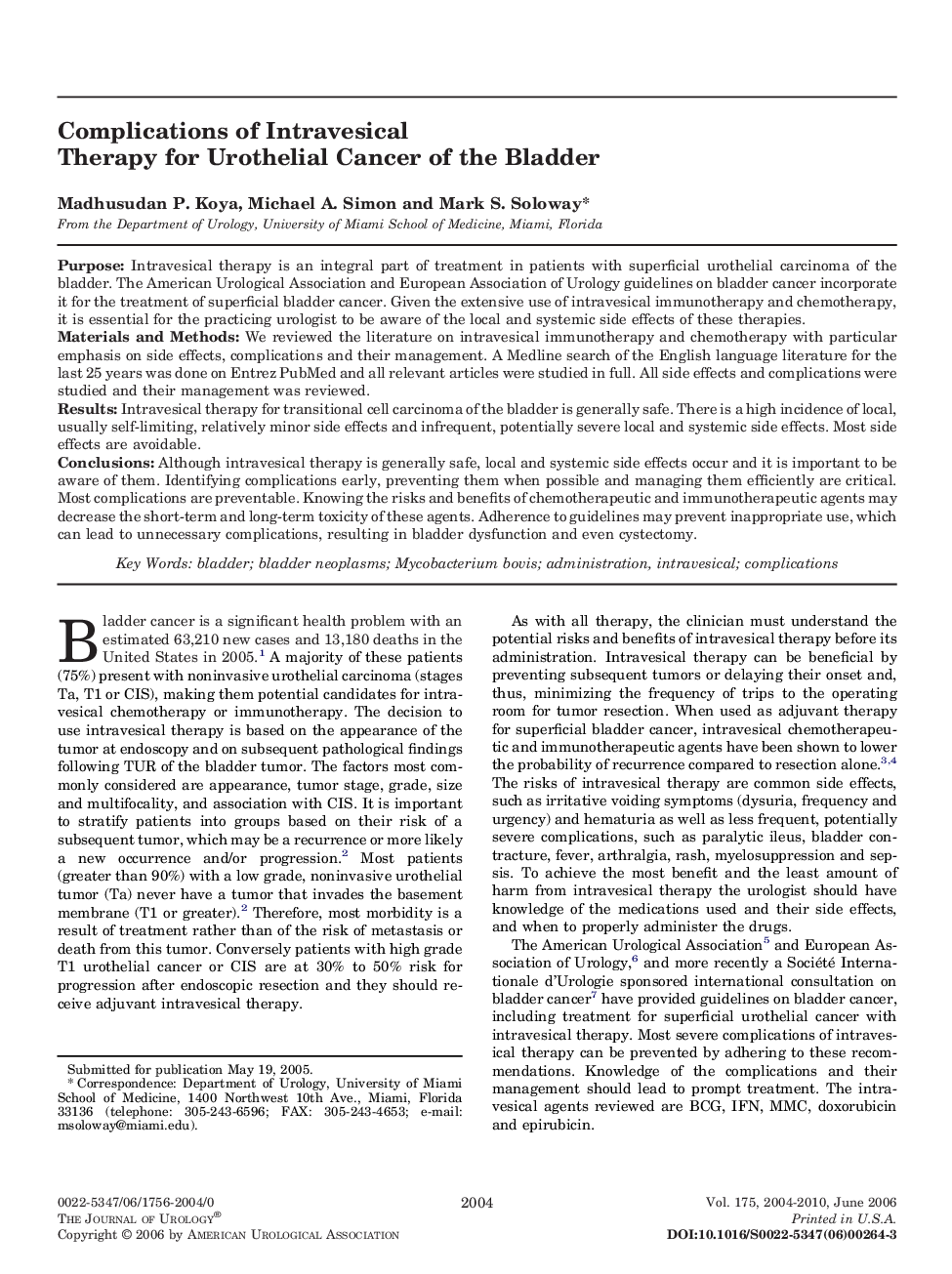| Article ID | Journal | Published Year | Pages | File Type |
|---|---|---|---|---|
| 3876334 | The Journal of Urology | 2010 | 7 Pages |
PurposeIntravesical therapy is an integral part of treatment in patients with superficial urothelial carcinoma of the bladder. The American Urological Association and European Association of Urology guidelines on bladder cancer incorporate it for the treatment of superficial bladder cancer. Given the extensive use of intravesical immunotherapy and chemotherapy, it is essential for the practicing urologist to be aware of the local and systemic side effects of these therapies.Materials and MethodsWe reviewed the literature on intravesical immunotherapy and chemotherapy with particular emphasis on side effects, complications and their management. A Medline search of the English language literature for the last 25 years was done on Entrez PubMed and all relevant articles were studied in full. All side effects and complications were studied and their management was reviewed.ResultsIntravesical therapy for transitional cell carcinoma of the bladder is generally safe. There is a high incidence of local, usually self-limiting, relatively minor side effects and infrequent, potentially severe local and systemic side effects. Most side effects are avoidable.ConclusionsAlthough intravesical therapy is generally safe, local and systemic side effects occur and it is important to be aware of them. Identifying complications early, preventing them when possible and managing them efficiently are critical. Most complications are preventable. Knowing the risks and benefits of chemotherapeutic and immunotherapeutic agents may decrease the short-term and long-term toxicity of these agents. Adherence to guidelines may prevent inappropriate use, which can lead to unnecessary complications, resulting in bladder dysfunction and even cystectomy.
